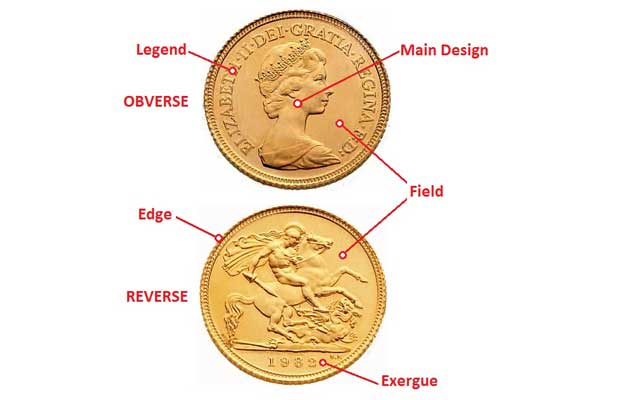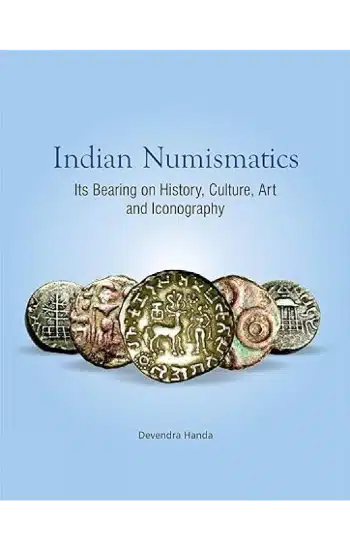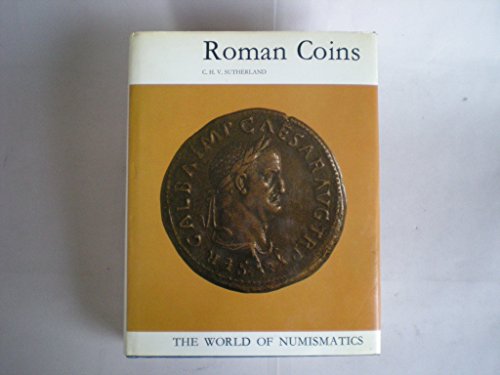New Reasons To Deciding On Currency Collecting And Proof
Wiki Article
What Can I Learn About The Local And Global Associations Of Numismatics By Using A Database To Conduct Research?
To conduct such research, follow this approach: An organized approach is provided to help you conduct this type of research. JSTOR and other databases and academic repositories offer access to papers and proceedings of conferences.
Define Research Focus: Specify your research objectives. Do you want to learn more about the history and activities international numismatic societies, regional collaborations or conferences, publications or specific topics in these associations? Set out your objectives for your research.
Search Strategy: Make use of keywords like "numismatic associations,"" "global numismatics," "regional society for numismatics" and also include specific names of associations or geographical regions if relevant. Utilize advanced search options to filter results according to the date, the content (such papers from conferences or newsletters) and geographic scope.
Data Collection: Access details on the mission, history, membership, publications, and other activities of global and regional organizations that deal in numismatics. Search for information on past or forthcoming conference, research collaborations and workshops. Find databases that contain information about members, contacts and leadership information.
Analysis: Analyze the data in order to determine the impact and significance of global and regional numismatic associations. Analyze how these associations contribute to the advancement of numismatic knowledge, foster international collaborations, and disseminate research through publications and conferences.
Cross-Referencing Check your findings by using data from multiple databases and sources. Compare the initiatives and activities that different associations have undertaken in order to get a complete overview of the numismatic trends on an international and regional level.
Documentation: Record your findings by consistently citing sources and noting the methodologies you applied. Note the database's names, search terms and the relevance of each resource to the research questions.
Stay updated: Numismatics associations continue to evolve. This includes new publications, collaborative projects, and conferences. Updates to the websites of the associations, newsletters research databases as well as the websites of association organizations will keep you informed of the latest developments in global numismatics.
By following these steps, you can effectively use databases to study the numismatics of regional and global associations. This permits a thorough examination of the organization structure and the research efforts and the collaboration efforts that have helped shape the numismatic industry on a regional and global scale. See the most popular banknote identification advice for blog examples including coin show, copyright, coin magazine, slovak coins, krona, coin mold, banknote identification, coin news, coin news, coin blank and more.

What Can I Do To Research Numismatics In Relation To Refineries Using An Online Database?
Here's a systematic approach to conducting such research:Database Selection: Select databases that focus on minting processes, precious metals and the past and present technology of refineries. This is a systematic approach for conducting such research. Some examples include databases from major refineries like Johnson Matthey and Heraeus or government mints such as the United States Mint and Royal Canadian Mint.
Define Research Focus: Specify your research objectives. You might be interested in knowing more about the history of refineries and their operation, technological advancements, production of coins and gold bullion as well as the quality standards and certifications for refineries that use precious metals. Find out the key to your search.
Search Strategy: Use keywords to locate refineries, such as "precious metallics refineries" as well as other terms such as "minting procedures", "bullion" or geographic regions. If appropriate, include names of refineries, historical periods or geographic areas. You can use advanced search to sort the results according to the date and type of document (such technical reports, production statistics or refining techniques).
Data Collection: Access data on refineries, such as their dates of establishment, the types of precious metals (gold silver platinum), refining techniques (such chemical refining, or electrolytic refining) and any notable technological advancements or developments.
Analysis: Examine the data to comprehend the role of refineries in numismatics. Examine the role of refineries in the supply of precious materials to produce coins and bullion. They also provide that quality control is maintained and uniformity is achieved during minting processes. Compare the practices and technologies used by different mints or refineries.
Cross-Referencing - Verify your results by cross-referencing information from multiple databases. This will provide an extensive and accurate picture of refineries' contribution to numismatics.
Documentation. Note your findings in a systematic manner by citing the sources you used and mentioning the methodologies that you've employed. Take note of the information in the databases you visited as well as the search terms that you utilized, as well as how each source relates to your research question.
Keep up-to-date Technology and standards for refinery change over time. Industry publications that provide updates such as refinery reports or mint publications will keep you up to date on the latest developments of refining technology as well as its impact on numismatics.
Use these guidelines to utilize databases effectively to explore the world of numismatics in relation to refineries. This approach allows a comprehensive investigation into technological innovations and quality control measures of refineries, and their contribution to the production and distribution of coins and gold bullion across the globe. Have a look at the top currency exchange tips for more examples including banknote rarity, copyright detection, coin production, rare banknotes, banknote, coin catalog, dirham, banknote authenticity, banknote history, banknote authenticity and more.

How Can I Search For Numismatics And Legal Experts In Databases?
This type of research can be carried out in a structured manner by using databases focused on numismatics, coinage laws and laws governing currency, legal precedents and academic papers. Here is a step-bystep guide to conduct this type of study: Database selection: Select databases that are specialized in research on legal issues and numismatic law. Additionally, select academic publications that discuss legal aspects of the numismatic field. These are legal research platforms like Westlaw or LexisNexis and numismatic law journals and publications of the numismatic societies.
Define Research Focus: Specify your research objectives. Are you interested in legal frameworks that govern coins and currencies, numismatic conflict or regulations governing coin production and circulation, or legal interpretations relating to numismatic authentic and ownership? Make sure you know where to look in order to narrow your search.
Search Strategy: Include keywords such as "numismatic law," or "legal aspects coinage," or "numismatic conflicts" and add specific legal concepts such as authenticity, ownership, and counterfeiting, if relevant. Advanced search tools to filter results according to date, legal topic (numismatics) and the jurisdiction (national or international), and other factors.
Data Collection: Access legal precedents (case law) and legislative text (legislation) and scholarly publications related to the subject of numismatics. Gather case summaries as well with legal analyses, interpretations, or pertinent statutes. Additionally, you can find historical perspectives as well as details on the law of numismatics.
Analysis: Analyze the data to comprehend the implications of law and issues in numismatics. Examine how legal frameworks influence the numismatic market, collection management and authentication procedures. Compare the legal frameworks and interpretations across different jurisdictions or historical periods.
Cross-Referencing. Verify what you have found by cross-referencing data from different databases journals, courts files and academic documents. This will ensure accuracy and completeness in your research and gives you complete coverage of the legal world in the field of numismatics.
Documentation: Documentation is essential. Use sources to cite and record the techniques you used. Note down the database names, search terms, and relevance of each resource to the research questions.
Keep up-to-date. Legal interpretations of numismatic numismatics and laws are subject to change in response to legal changes or court rulings. Keep yourself up to date by ensuring you are updated in numismatic databases and legal databases, publications and updates from the numismatic society concerning legal developments.
By following these steps, you'll be able to effectively make use of databases to research the field of numismatics with respect to legal experts. This method allows for a thorough analysis of the legal frameworks, challenges, and scholarly interpretations that intersect with the field of numismatics providing insight into the legal aspects governing the collection of coins, coinage and trade around the world. See the recommended coin release for blog advice including coin blank, coin expo, coin rarity, banknote certification, dirham, treasury, currency grading, numismatics, slovak coins, currency grading and more.

How Do I Use How Do I Use A Numismatics Database To Conduct Educational Institutions Research?
When researching numismatics as it relates to educational institutes and institutions, you can utilize databases that focus on academic programs. You can also look for publications and research projects. To conduct a study follow these steps: Database Selection: Select databases which specialize in academic institutes, museum collections, or scholarly publications. These include university library catalogues, academic journal database (like JSTOR), and museum databases.
Define Research Focus: Specify your research objectives. You may be interested in learning about numismatic classes, research conducted by institutions of higher education, numismatic collection that are held by museums or academic institutions affiliated, or research papers by numismatic specialists. Clarify the focus of your research.
Search Strategy Use keywords to find relevant publications, including "numismatics collections in museums at universities," "academic studies in the field of numismatics" etc. You could also include institutions and geographical regions if you want. You can use advanced search features to filter results according to date and academic disciplines (history archaeology classics) as well as type of publication.
Data collection: Access information on educational institutions' numismatic classes as well as research projects and museum collections. You can collect information such as courses descriptions, research abstracts, museum catalogue entries and essays written by faculty members or researchers who are experts in numismatics.
Examine information to assess the educational institution's research and academic contributions to numismatics. Analyze the extent of courses offered in numismatics, the interdisciplinary research methods, museum collections' importance in the advancement of scholarly work on numismatics and contributing to the numismatic literature.
Cross-Referencing Validate your findings by cross-referencing across databases, university websites and museum collections. This will guarantee accuracy and completeness of your study. This also gives complete information about the involvement of educational institutions in the field of numismatics.
Documentation. Record your research findings by recording the method used and citing all sources. Take note of the information in the databases you used and the search terms you searched with, and the way each source is related to your research.
Numismatic research programs, educational programs and research projects are continuously evolving. Stay updated. Stay current by monitoring announcements from universities' websites, museum announcements, and academic journals for the most recent developments in the field of numismatics in educational institutions.
Follow these steps to utilize databases effectively to explore numismatics and educational institutions. This will allow you to investigate the educational opportunities as well as the contributions of scholars that have shaped the academic study as well as appreciation and understanding of Numismatics. Have a look at the most popular zlatemince.cz czech precious metals for more advice including banknote expo, numismatic investment, coin storage, coin appraisal, banknote certification, ringgit, banknote errors, rial, coin issue, numismatic value and more.

How Do I Use An Online Database To Find Numismatics And Industry Consultants?
Researching numismatics with regards to consultants in industry requires databases that focus on consulting firms, individuals consultants, industry reports and publications from organizations like numismatic society. Here's a method for conducting this kind of research:Databases Selection: Choose databases that specialize in consulting companies, industry reports, and publications related to the numismatics field. They include directories for businesses and websites for consulting companies. Additionally, they include publications of numismatic societies.
Define Research Focus: Specify your research objectives. Are you interested in learning more about the services of consulting offered to numismatic businesses Market analysis reports, market analysis on numismatics, the expertise of individual consultants in specific industries, or even trends identified by industry consultants? Make sure you know what your goals are to guide your research.
Search Strategy: Utilize keywords like "numismatic industry consulting”, "numismatic consulting companies", "market research reports on coinage" and geographical regions, in the event that they are applicable. You can use advanced search features by selecting results according to specific areas of expertise and the services provided by consultants.
Data Collection: Access to data about consulting firms that specialize in the field of numismatics. Additionally, there are industry consultants that provide services to the numismatic business. It is possible to collect information about consultants, their expertise (such as market analysis, collection and authentication management) and testimonials from customers as well as reports from industry consultants and more.
Examine the data to assess the function and contribution of consultants within the numismatics industry. Examine the techniques and knowledge employed by consultants who advise on investments in numismatics trends in the market, or collection management.
Cross-Referencing: Confirm your findings by cross-referencing information across multiple databases, consult firm directories, numismatic society publications, and reports from industry. This ensures completeness and accuracy when conducting your research. It also provides complete information about the consulting landscape within numismatics.
Documentation. Record your findings from research by citing sources, and recording methods. Keep track of the specifics of the databases you used as well as the search terms that you utilized, as well as how each source is related to your research.
Stay informed Market trends in numismatics evolve in response to economic developments and regulatory updates. Keep track of updates on the websites of consulting companies, industry reports and publications from societies for numismatics to keep up with the most current industry trends.
Following these steps will allow you to gain an understanding of numismatics and industry consultants. This approach will allow for a comprehensive analysis of the information on analyses of markets, strategic information and business strategies offered by industry experts. Take a look at the most popular gold coins tips for site recommendations including antique coins, precious metals, krona, banknote expo, coin catalog, ringgit, banknote news, coin minting, ringgit, banknote certification and more.
